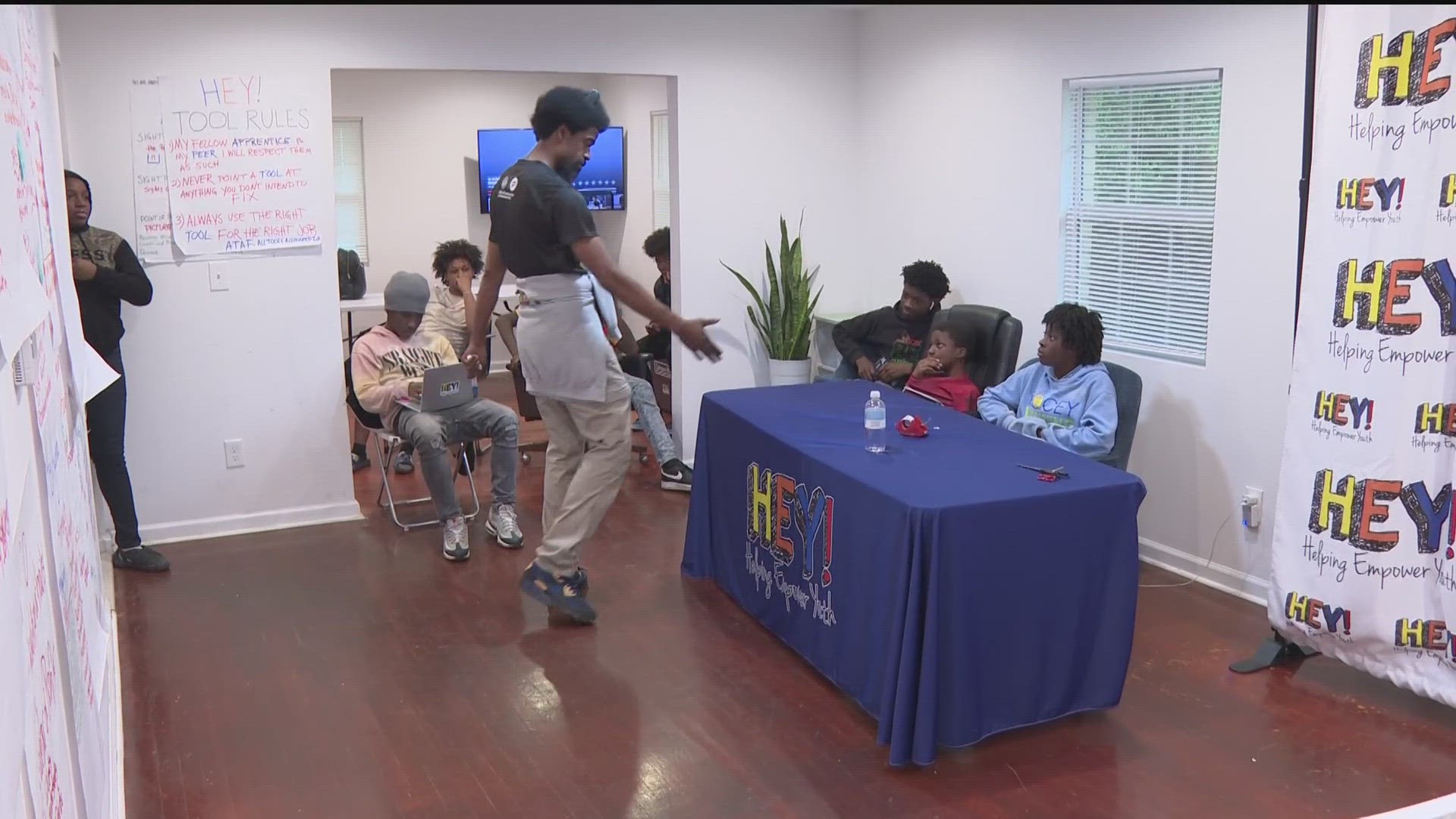ATLANTA — An Atlanta mentorship program that strives to prepare Black youth for success is trying to bounce back after dealing with vandalism over the weekend.
A kiosk for Helping Empower Youth (HEY) was found in shambles and was missing thousands of dollars in merchandise.
It's an obstacle for a group that operates with the goal of helping young people.
Here's how the program was born and how the recent incident impacted them.
Aiding the youth
The program started as a dream to meet a desperate need in Atlanta -- helping Black youth.
“I want to stand in the gap for them,” Atlanta Helping Empower Youth Executive Director and co-founder KaCey Venning said.
In 2009, Venning alongside co-founder Marc “Coach” Boyd, rose to the occasion.
For both, helping at-risk kids and teens was personal.
“And so for us, it was really about bringing awareness and attention to what was really happening versus just moving them off the corners,” Venning told 11Alive during an interview earlier this year.

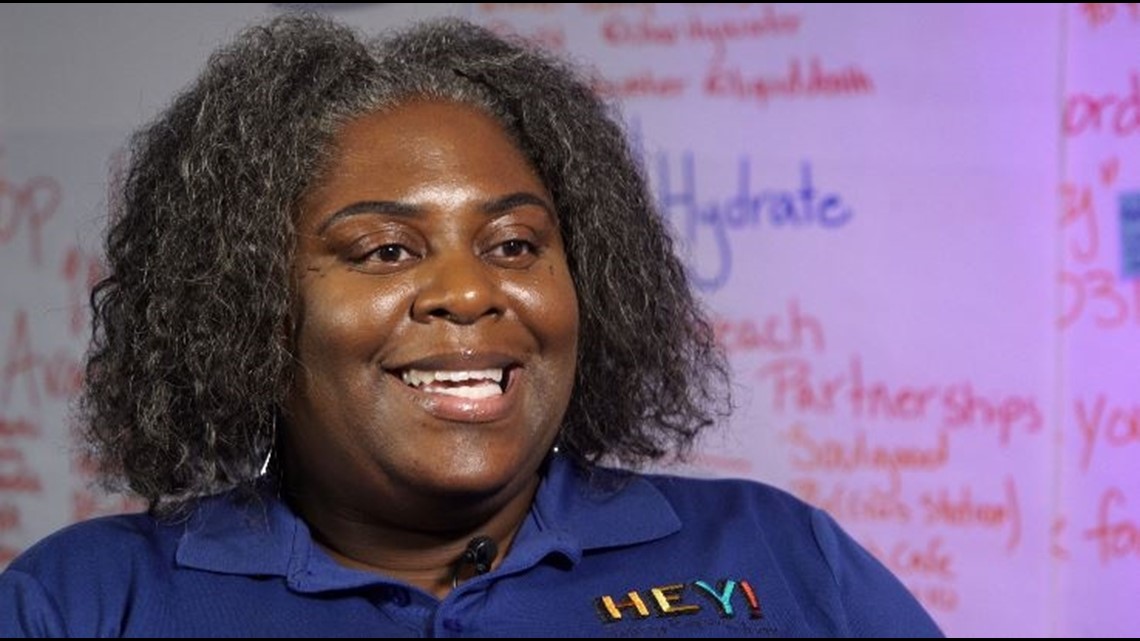
The major glaring gap for Atlanta youth -- and many others -- can be found rooted in poverty. According to the Atlanta Wealth Building Initiative, if a person is born into poverty in this city, there’s only a 4% chance of escaping it in their lifetime.
The vandalism
On Sunday, the kiosk set up for youth in their program was broken into and vandalized. Thousands of dollars worth of merchandise, along with other materials for vending were stolen.
For now, the program -- which was preparing to participate in the city’s “Atlanta Streets Alive” initiative -- is focusing on how to push forward after the large financial loss.
The video below shows the destruction of the kiosk.
A program rooted in history and helping

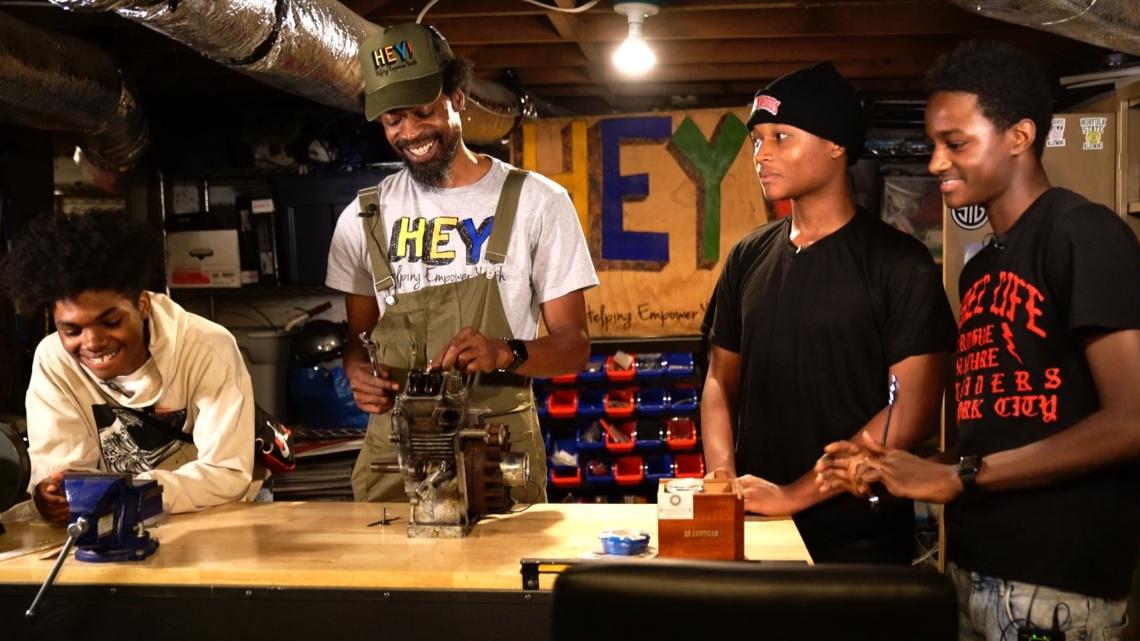
The HEY program is unique because it serves as a community-based safety net for Atlanta youth.
On top of hands-on activities, like building a retention wall for a community garden, archery and mechanics, the boys are taught about leadership, emotional regulation, critical thinking, STEM, and so much more.
“It is Black male youth who find their way to us,” Venning said.
So far, countless Atlanta youth have found their way to the program -- flocking to its home base, which sits blocks away from Bankhead and the Trap Music Museum.
“And from everything that happened on the outside to everything that’s going to happen here - in Miss Kathryn Johnston’s space,” Coach Boyd told 11Alive.

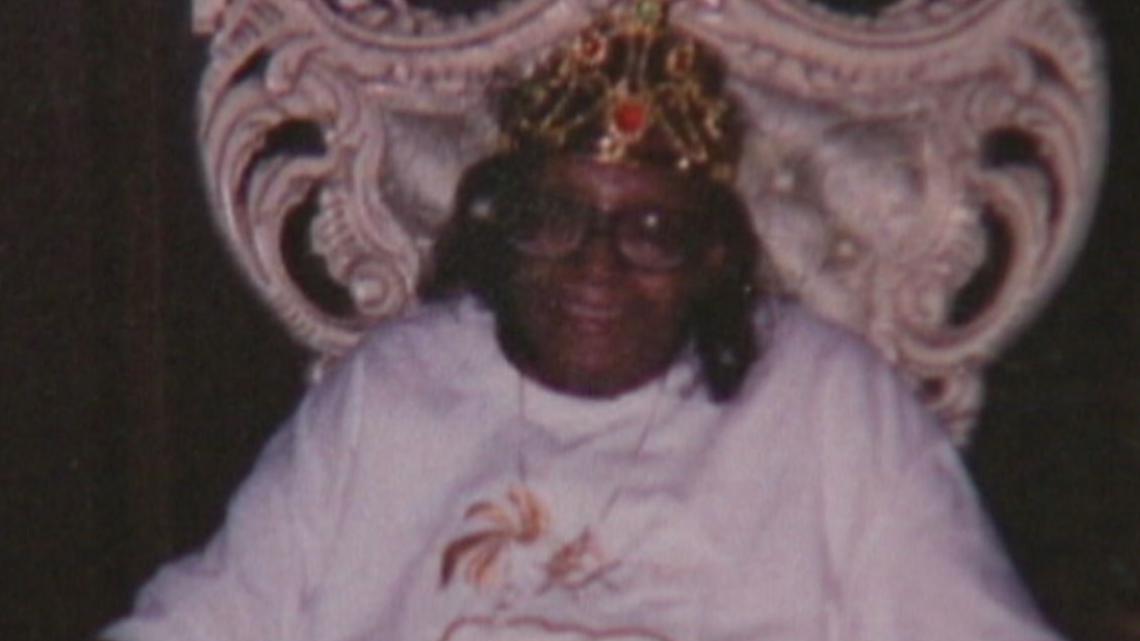
What once served as a tragic reminder for so many -- the home of Ms. Kathryn Johnston who was a 92-year-old woman shot and killed by police in 2006 when a no-knock warrant was served as the wrong address -- has now transformed into a safe haven for the HEY program youth and leaders.

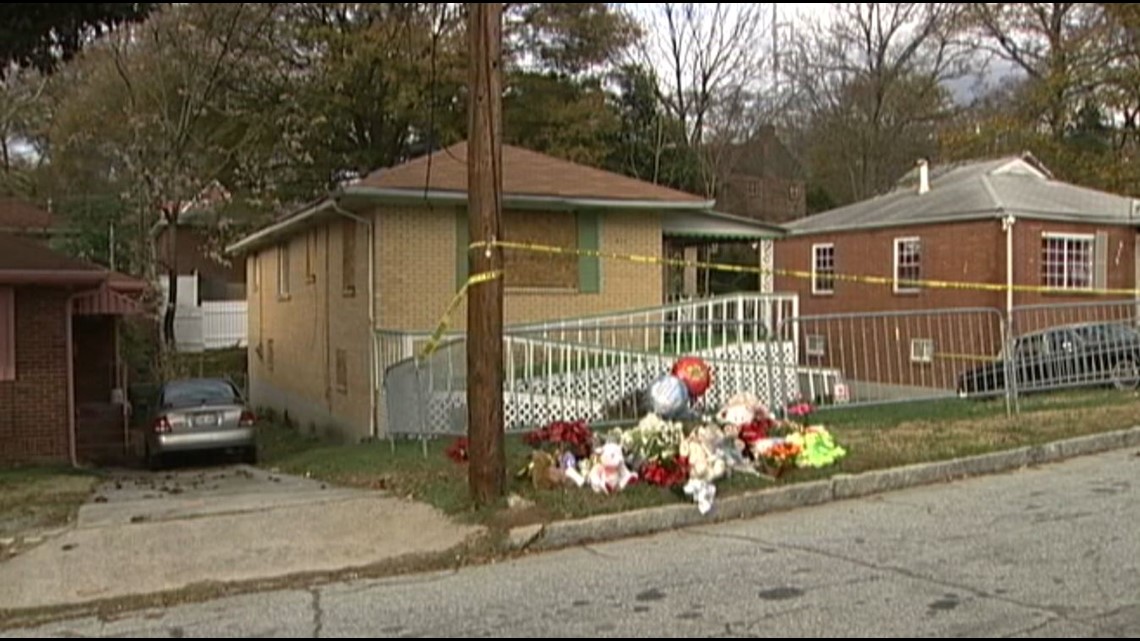
“With Miss KaCey, -- she’s like our mom,” a HEY Program teen told 11Alive.
“She’s taught us about, like how to build businesses,” another teen added. “And this is like, you know, like in a world nobody else and never tell you anything like this.”
Every day, Venning and Coach Boyd welcome each child into the home with open arms.
“They do look like kids, but I think the stigmatism just of being a black male. Period. You’re going to be a 10-year-old kid, gets 10 years put on them just by looking at them,” Boyd said. “And so I would just like to say to people -- just remember that they really are kids.”
Boyd is a Marine veteran. Nowadays, service looks like helping Atlanta’s youth -- some vulnerable to joining gangs or close to dropping out of school.
For them, HEY serves as a judgment-free zone.
“We were just like how we was raised,” one of the teens told 11Alive. “We didn’t know proper grammar or we didn't really know how to really talk to people. So they helped us out a lot too.”

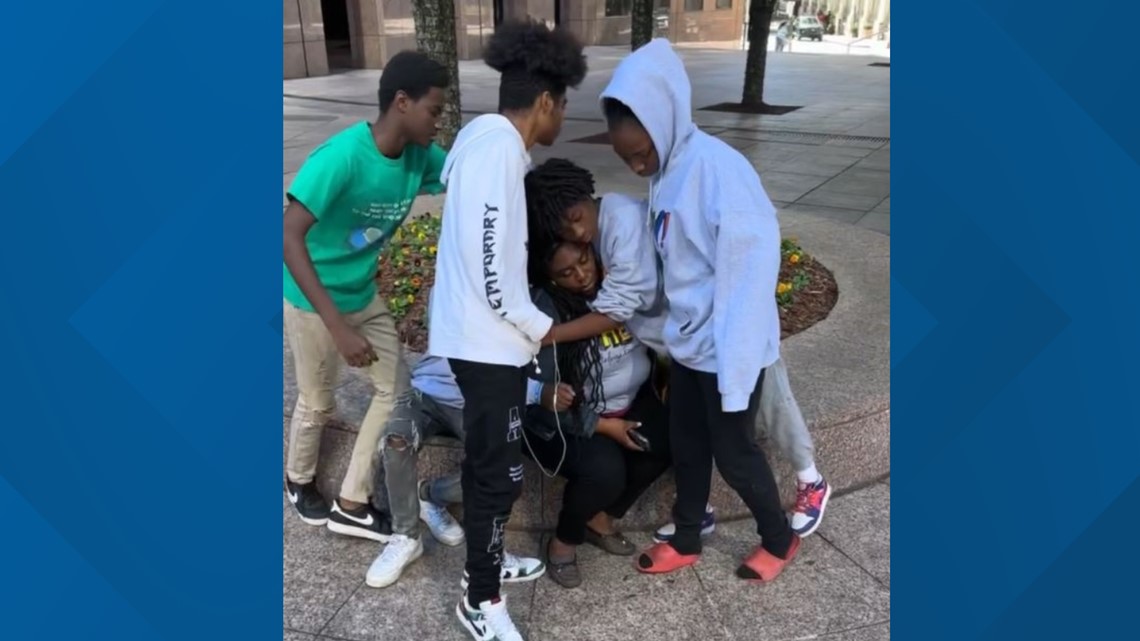
Pushing forward, no matter the obstacle
During the pandemic, when some of her mentees were selling water bottles in the midst of the George Floyd protests, Venning stepped in to de-escalate situations between the youth and police.
“For me, it activated protection mode because so many times young people are always told that they're wrong and kind of cast to the side. And I found myself digging my heels in and fighting for them,” Venning said.
Coach Boyd is always one phone call away for the youth who find safety and comfort in the HEY program.
“One day I saw them walking by my house with a cooler. The Lord spoke to me that day, told me to go talk to them,” he said. “ I stopped them and they were like, ‘We're going down to the corner down here, you know, to go sell some water.'"
Clocking in - when the rest of the world clocks out - is what Boyd said being a positive role model is about.
“So they could see that, 'OK, Unc’ out here, but Unc’ ain't out here playing games with us like that,'” he said.
The boys have not only earned but deserve grace, according to Venning.
“I think it's bigger than the bottle if I'm being honest, because who's behind the bottle, Right?” she said.
For Venning and Boyd, seeing Atlanta youth selling water or struggling, is a sign there’s a story that a child is not responsible for.
“I don’t think it was ever about the bottle itself. It was -- we see what poverty looks like in the city now, and we can’t ignore it and we can’t hide it,” she added.
The HEY Program prides itself as a place for guidance and tough love - but most importantly love first.
“The world is so harsh to them. It’s important, I know for me personally, to be a softer place for them - even when I have to tell them the hard truths,” Venning said.
“God specifically told me that my service didn’t end [in the military],” Boyd added. “So get out, get up and go help these kids, because, you know, you have the ability to do so.”
How to donate to the HEY program
If you or someone you know would like to donate to the Help Empower Youth (HEY) program, contributions can be distributed through their website: https://www.helpingempoweryouth.org/support-us

